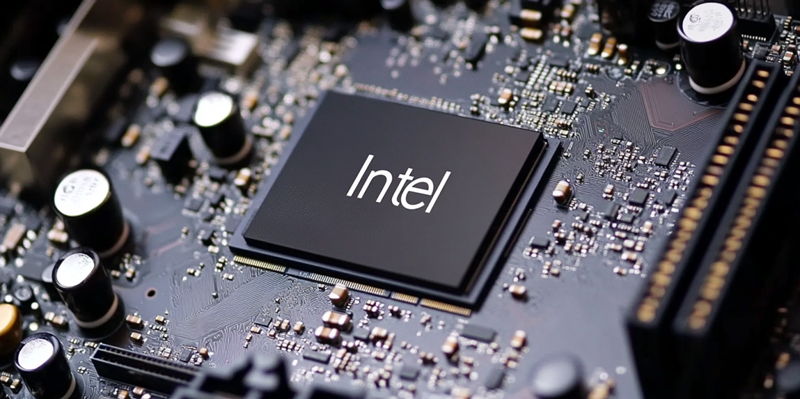In a highly anticipated move that has been the subject of numerous rumors and leaks, Intel announced the upcoming launch of its new Arc series desktop GPU, set to be unveiled on December 3. This announcement marks their latest effort to make significant inroads into the market for budget-friendly graphics cards, an arena that has been traditionally dominated by industry giants Nvidia and AMD. The teaser video released by Intel has sparked intense speculation within the tech community, hinting heavily at the introduction of the Battlemage lineup, specifically the B580 and B570 models.
The leaked specifications of the B570 model have further fueled excitement and speculation. The B570 is anticipated to feature 18 Xe2 cores, 10GB of GDDR6 VRAM, a 160-bit memory bus, and a boost clock of 2.6GHz. These specifications suggest a more modest version of the higher-end B580, which is rumored to include 20 Xe2 cores, 12GB of VRAM, and a higher boost clock. The detailed specs suggest that Intel is strategically positioning itself to offer competitive alternatives to solutions provided by Nvidia and AMD, aiming to cater to a more budget-conscious segment of PC gamers.
Detailed Specifications and Potential Impact
The specifications of the B570 hint at a carefully balanced performance suitable for its target market. By incorporating 18 Xe2 cores and 10GB of GDDR6 VRAM, Intel appears to be offering a powerful yet cost-effective solution for gamers looking to upgrade their systems without breaking the bank. The 160-bit memory bus and a boost clock of 2.6GHz further enhance the performance metrics of the B570, making it a compelling option for those seeking a middle ground between performance and affordability. The comparison with the higher-end B580, which boasts 20 Xe2 cores and 12GB of VRAM, suggests a clear differentiation in Intel’s product strategy, which aims to cater to varying levels of gaming needs and budget constraints.
The potential price points for these GPUs are particularly noteworthy. Rumors suggest that the B580 may be priced around $250, with the B570 potentially coming in under $200. This aggressive pricing strategy could disrupt the current market dynamics, particularly in a segment where affordability is a key concern for consumers. Intel’s move to offer competitive pricing while maintaining robust performance specifications could position the Battlemage series favorably against Nvidia and AMD, challenging the established players in the budget GPU market.
Market Reception and Anticipated Challenges
The buzz surrounding Intel’s announcement has been marked by a mix of excitement and cautious optimism. Tech enthusiasts and industry experts have been keenly analyzing the potential impact of Intel’s entry into the budget GPU segment. If Intel manages to deliver on its promise of competitively priced GPUs with strong performance metrics, the Battlemage series could indeed become a viable option for many PC gamers. The 10GB VRAM of the B570, for instance, stands out, especially in a market where Nvidia continues to offer models with 8GB VRAM within the same price range. This strategic advantage could prove pivotal in swaying consumers towards Intel’s offerings.
However, the industry remains cautiously optimistic, awaiting official confirmation of the specifications, performance, and pricing. The success of Intel’s Battlemage series hinges on whether the company can meet the high expectations set by the teasers and leaks. Until the official launch and subsequent real-world tests, the tech community is advised to temper their expectations, as initial leaks and rumors often evolve in unexpected ways.
Future Implications for the GPU Market
In a move that tech enthusiasts have eagerly anticipated, Intel has announced the upcoming launch of its new Arc series desktop GPU, set to debut on December 3. This announcement marks Intel’s latest attempt to gain a foothold in the budget-friendly graphics card market, a domain traditionally ruled by Nvidia and AMD. The teaser video released by Intel has caused quite a buzz in the tech community, strongly hinting at the arrival of the Battlemage lineup, particularly the B580 and B570 models.
The leaked specifications for the B570 model have only heightened interest. The B570 is expected to feature 18 Xe2 cores, 10GB of GDDR6 VRAM, a 160-bit memory bus, and a boost clock of 2.6GHz. These specs point to a less powerful version of the higher-end B580, which is rumored to boast 20 Xe2 cores, 12GB of VRAM, and a higher boost clock. These details indicate that Intel is strategically positioning itself to provide competitive alternatives to Nvidia and AMD, aiming to attract budget-conscious PC gamers who want quality performance without breaking the bank.

